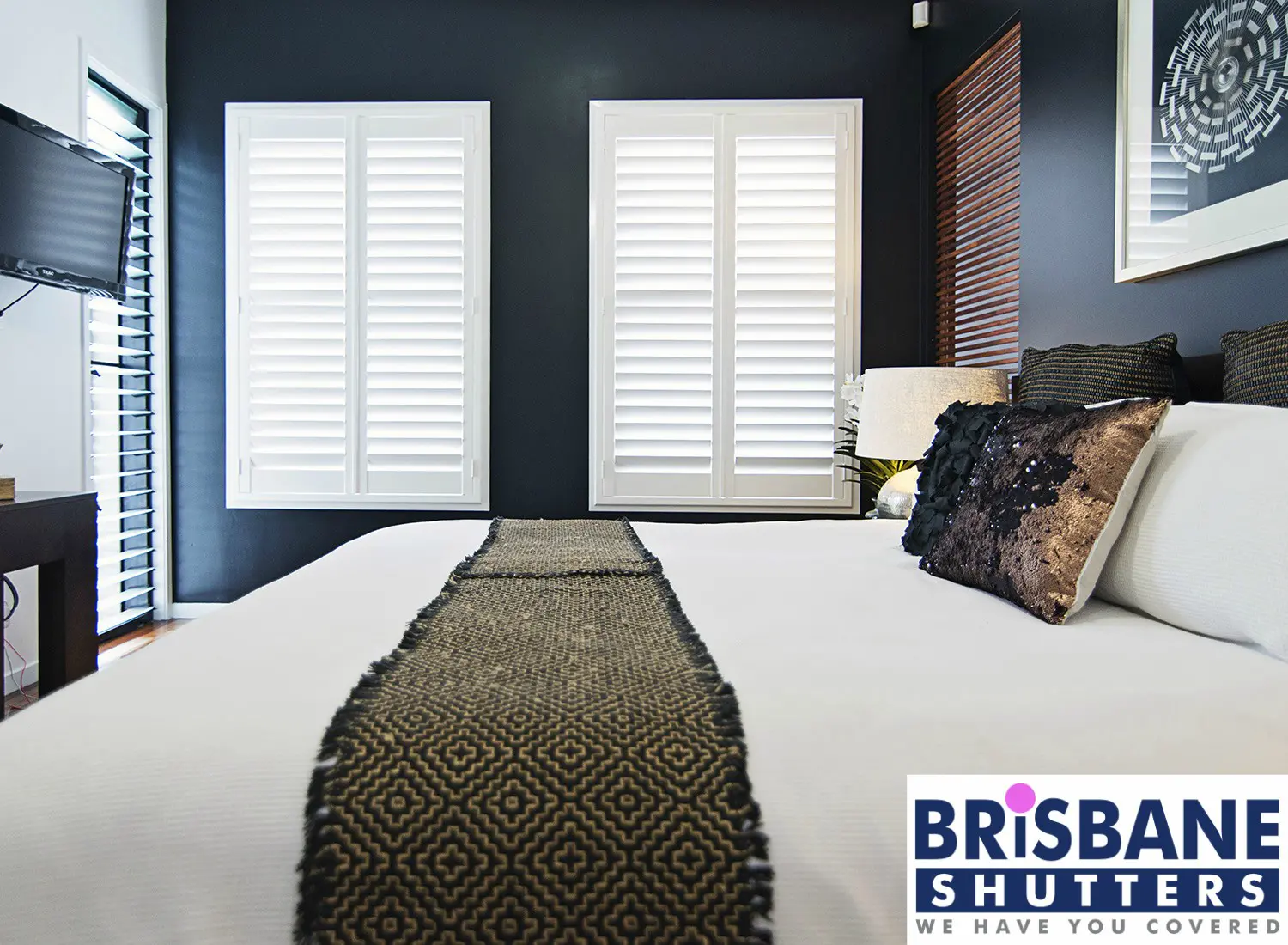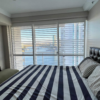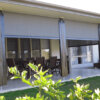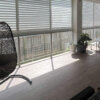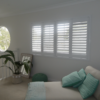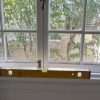The Hidden Dangers Revealed
If you are considering whether to buy PVC, timber, or aluminium plantation shutters there are a few things you should be aware of before making your buying decision.
This is especially important if you live on that big island in the south pacific.
Yep, Australia.
It’s a harsh environment we have here.
Scorching sun, moisture and humidity, extreme UV exposure, huge swings of heat and cold, cyclones, hail and the list goes on.
So when choosing new window shutters for your home, or any type of window blinds, it is imperative to know which type of material will hold up best in the environment in which you live.
Buying plantation shutters for your entire home can be costly, so the last thing you would want to do is have to replace them within 5 years due to material breakdown.
Unfortunately, we see this all too often here in Brisbane.
Let’s take a look at the three of the most common materials used for plantation shutters and things you need to know before making your buying decision:
PVC Shutters
PVC, short for Polyvinyl Chloride, is a synthetic plastic polymer made from petroleum.
With the chemical makeup of PVC, there are three major concerns to think about when considering these types of shutters.
Longevity:
With our harsh Australian climate the number 1 problem we see with PVC shutters is their poor longevity when exposed to the elements.
Being a plastic, PVC is highly susceptible to UV. Prolonged exposure to UV will turn your nice, bright-white shutters, into a yellowy, blue colour in just a few years.
UV also makes plastic become brittle over time.
If you are located in Sydney or Melbourne you may get 5-10 years out of PVC shutters but unfortunately for residents here in Brisbane, and other parts of South East QLD, we are in one of the worst UV pockets in the world.
For Brisbane residents, and especially those with windows facing west, PVC shutters exposed to UV and sunlight will start to break down within only 5 years.
Another little-known fact is that PVC shutters are up to three times heavier than the traditional timber range, and once PVC begins to lose its strength from UV exposure, the shutters start to warp and ‘drop’ from the weight and need to be replaced.
Warranties:
PVC is an oil based chemical compound which makes it a very difficult surface for paint to adhere to. This is why you will generally see a standard ‘structural’ warranty period and then a limited warranty period on the paint. Paint peeling and total delamination is a common problem of products made from PVC that are out in the elements.
It is wise to thoroughly check the terms and conditions when buying PVC shutters, and pay close attention to the wording.
Now let’s take a look at the third thing to know when considering buying PVC:
Toxicity:
PVC has been used for decades in all types of products from children’s toys, to clothing, to a wide range of building products and materials.
But simply put, PVC is a toxic compound that is considered a pollutant to humans, animals and the environment.
Over time PVC releases extremely hazardous and carcinogenic Dioxins which can affect the health of humans. PVC has also been known to trigger reactions to people with asthma or people who are sensitive to certain chemicals.
Another major problem associated with products made from PVC presents at the end of the products’ lifespan.
Recycling PVC is problematic at best so the majority of the products made from PVC are designated to landfill.
As the PVC breaks down, harmful chemicals such as mercury, lead, chlorine and phthalates, are released into the environment and as a result, can leak into groundwater, local streams, soil and eventually can lead into our drinking water.
Conclusion On PVC
When shopping for plantation shutters, you will no doubt be offered a PVC product as the ultimate solution. 95% of all shutter companies only sell a PVC product due to its low cost, high margins, and mass production out of Asia.
Unfortunately, this is also the reason why there is very little information available that warns consumers about the use of PVC in shutters.
At Brisbane Shutters, we do offer a PVC shutter product, and in a few cases, this may be the best solution. But for the majority of cases, like adding plantation shutters to your home, we do not recommend PVC.
Let’s take a look at what materials we do recommend when buying shutters for your home.
Timber Shutters:
There’s a reason why the human race has been building with timber for thousands of years.
Organic & Renewable:
Timber is a 100% natural organic material that is known for its strength and longevity. Timber is reusable, recyclable and best of all, biodegradable.
In comparison to PVC, timber shutters require far less energy to produce and do not release any toxic chemicals into the air that we breathe.
Also being a renewable resource, timber has much less impact on the environment when produced, compared to other products that are chemically produced.
The wood used for timber shutters supplied by our company is always sustainably sourced from registered sustainable forestry locations and always 100% certified hardwood.
Energy Efficient:
Windows are typically responsible for losing up to half of the energy it takes to keep your home cool in summer and warm in winter.
Adding timber shutters to your windows will greatly reduce your homes energy costs by adding a barrier of natural insulation. Not only that but will also protect your internal furnishings from UV exposure and fading.
Aluminium Shutters:
If you are in need of external shutters that are outside of your home, then there is only one type of material to consider.
Aluminium.
Aluminium shutters are very strong, durable, 100% waterproof and designed to thrive in all types of weather.
Not only are they the ideal choice for longevity, they also offer unprecedented security due to their strong material make up.
Aluminium Shutters are ideal for balconies, patios and Alfresco living areas, effortlessly bringing the outside in, and offering flexibility around light and breeze control.
If your new shutters will be outside and exposed to the rain there is no better choice of material than Aluminium.
Conclusion:
To summarise, if you require shutters for internal use, we strongly recommend you buy a 100% hardwood timber product, with either a 2 pac paint or a natural stain.
If you are buying shutters for external use then go with a high-quality, cyclone rated Aluminium as your material of choice.
Here at Brisbane Shutters, we are by no means scientific specialists when it comes to chemical compounds such as PVC, and how these can affect the human body.
The same must be said about exactly how UV breaks down the PVC.
All we can write about is our personal experiences and what we have seen first hand, dealing with shutters for over 17 years.
We encourage you to do your own research and due diligence about the possible side effects of PVC.
If you are in SE QLD and would like more information about which shutters, and which material is best for you, reach out to the team on 1300 229 254 or send us an email to info@brisbane-shutters.com

